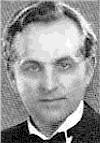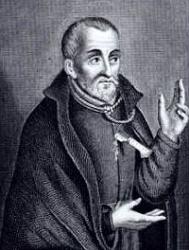Planning worship?
Check out our sister site, ZeteoSearch.org,
for 20+ additional resources related to your search.
- |
User Links
Person Results
Hubert P. Main

1839 - 1925 Composer of "[Press on, press on, with eager joy]" in Hallowed Hymns, New and Old Hubert Platt Main DD USA 1839-1925. Born at Ridgefield, CT, he attended singing school as a teenager. In 1854 he went to New York City and worked as an errand boy in a wallpaper house. The next year he became an errand boy in the Bristow & Morse Piano Company. He was an organist, choir leader, and compiled books of music. He also helped his father edit the “Lute Songbook” by Isaac Woodbury. In 1866 he married Olphelia Louise Degraff, and they had two sons: Lucius, and Hubert. In 1867 he filled a position at William B Bradbury’s publishing house. After Bradbury’s death in 1868 the Bigelow & Main Publishers were formed as its successor. He also worked with his father until his father’s death in 1873. Contributors to their efforts were Fanny Crosby, Ira Sankey, Wilbur Crafts, and others. In addition to publishing, Main wrote 1000+ pieces of music, including part song, singing school songs, Sunday school music, hymns, anthems, etc. He also arranged music and collected music books. He 1891 he sold his collection of over 3500 volumes to the Newberry Library in Chicago, IL, where they were known as the Main Library. Some of his major publications include: “Book of Praise for the Sunday school” (1875), “Little pilgrim songs” (1884), “Hymns of Praise” (`1884), “Gems of song for the Sunday school” (1901), “Quartettes for men’s voices: Sacred & social selections” (1913). In 1922 Hope Publishing Company acquired Bigelow & Main. He was an editor, author, compiler, and composer, as well as publisher. He died in Newark, NJ.
John Perry
Hubert P. Main
George W. Cooke
1884 - 1951 Author of "I've got the joy" in Praise Ways George William Cooke was born in Yorkshire, England in 1884 and died in Jamestown, New York in 1951. He was the author of "Joy in My Heart" which was copyrighted in 1926 (but not renewed). At that time he was living in Wilmington, Delaware. He was a minister and associated with a group called Gospel Crusaders which was associated with the Methodist Church. He ran the Delmarva Camp, a Methodist camp that held gospel meetings and revivals. He was later minister of Methodist churches in Buffalo and Rochester New York.
Dianne Shapiro from research done by Richard L. Green
George W. Cooke
Mrs. Frank A. Breck
Author of "Sing for Joy" in Sing Unto the Lord See Breck, Carrie Ellis, 1855-1934
Mrs. Frank A. Breck
James Chepponis
b. 1956 Person Name: James J. Chepponis Author of "Psalm 95: Let Us Come before the Lord" in Worship (4th ed.)
James Chepponis
May Whittle Moody
1870 - 1963 Composer of "[I've found the life of truest joy]" in Northfield Hymnal Mary (May) Jennette Whittle Moody 1870-1963. Born at Chicago, IL, daughter of hymnwriter, Daniel Webster Whittle (El Nathan), and, upon marrying, daughter-in-law to Dwight Lyman Moody, she attended Northfield School in MA (one of two schools founded there by D L Moody), after which she attended Oberlin College, Oberlin, OH. She then attended the Royal Academy of Music in London, England (1890-91). She became a singer, organist, composer, and hymn editor. She assisted her father and Dwight L Moody in their evangelistic work. In 1894 she married William Revell Moody, and they had four children: Irene, Dwight, Beatrice, and Virginia. Only Beatrice lived to adulthood, the others died before age six. She and her husband returned to Northfield, MA, where her husband headed the schools founded by his father. She had an organ in her home, and she collaborated with her father by composing some of the tunes for his hymn lyrics. The last year of his life, her father, Daniel, lived with them (he died in 1901). She died at East Northfield, MA.
John Perry
May Whittle Moody
Elton Menno Roth

1891 - 1951 Composer of "[Joyfully, joyfully onward we tread]" in Youth Sings Roth attended the Fort Wayne (Indiana) Bible School and the Moody Bible Institute in Chicago, Illinois. He worked with traveling evangelist tours, and was a music teacher at the Alliance Bible schools in St. Paul, Minnesota, and New York City; the Bible Institute, Los Angeles, California; Baptist Theological College; and City College of Los Angeles. His Ecclesia Choir toured throughout America in 1931. He wrote over 100 hymns, and a number of anthems.
--© Cyber Hymnal™ (www.hymntime.com/tch)
Elton Menno Roth
Joe E. Parks
Person Name: J. E. P. Author of "I Love to Sing About His Love" in Silver Trumpets
Joe E. Parks
Thomas Campion

1567 - 1620 Person Name: Thomas Campion, 1567-1620 Author of "Sing a song of joy" in The Cambridge Hymnal Campion, Thomas, born c. 1567, d. 1619, and buried at St. Dunstan's in the West, London, March 1, 1619. He was a physician, poet, and musician, but his reputation rests mainly on his poetical works. These include various Masques performed before James I. and other noble personages. Of these some rare copies are in the British Museum. His Observations in the Art of English Pœsie, &c, was published in 1602, and his New Way of Making four parts in Counter-point, &c, 1620. Of his poems, five are given by Palgrave in his Treasury of Sacred Song, 1889. His connection with hymnody is very slight, and nothing by him is now in common use.
--John Julian, Dictionary of Hymnology, New Supplement (1907)
Thomas Campion
Roberta Bard
Person Name: Roberta Bard Ruby Adapter of "Joyful, Joyful, We Adore Thee" in Worship in Song
Roberta Bard
David Evans
1874 - 1948 Person Name: David Evans, 1874-1948 Arranger of "O QUANTA QUALIA" in Hymnal Supplement 98 David Evans (b. Resolven, Glamorganshire, Wales, 1874; d. Rosllannerchrugog, Denbighshire, Wales, 1948) was an important leader in Welsh church music. Educated at Arnold College, Swansea, and at University College, Cardiff, he received a doctorate in music from Oxford University. His longest professional post was as professor of music at University College in Cardiff (1903-1939), where he organized a large music department. He was also a well-known and respected judge at Welsh hymn-singing festivals and a composer of many orchestral and choral works, anthems, service music, and hymn tunes.
Bert Polman
David Evans


 My Starred Hymns
My Starred Hymns


